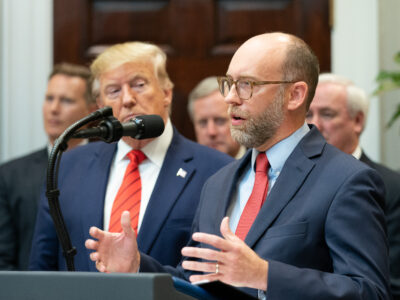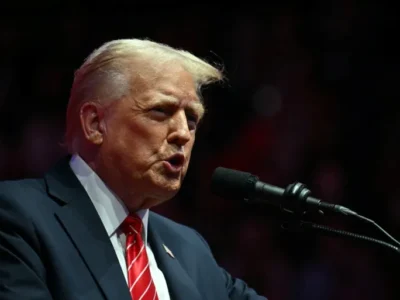Climate Policy
Quiet Climate Policy
Just because climate change isn’t salient for most voters doesn’t mean policy isn’t important
This Substack post from Matthew Yglesias on climate policy gets, I think two things right and one thing wrong. And getting those three components of climate policy correct is, I believe, important to long term, politically sustainable success in addressing climate change. First, as Yglesias correctly notes, climate change is not a priority for most …
Continue reading “Quiet Climate Policy”
CONTINUE READINGCalifornia Must Invest in Climate and Communities to Drive Climate Progress
The state has pioneered an approach—what’s worked, and what’s next?
As solar and other climate infrastructure construction accelerates, and with Californians concerned both about the cost of living and about seeing local opportunities result from climate projects, the conversation about community benefits (commitments to hiring and other local investments made by developers in connection with new projects) has grown increasingly animated in California and even …
Continue reading “California Must Invest in Climate and Communities to Drive Climate Progress”
CONTINUE READINGHow Methane Satellites Work and Why it Matters
This new UCLA Law report aims to help policymakers understand the science and utility of methane satellites.
These days, I’ll take progress on climate change where I can get it. And one place to look right now is up — literally. New satellites are providing never-before-seen data about global methane sources, helping policymakers, industry, and others target that superpollutant in new ways. Today, some colleagues at UCLA Law and I are releasing …
Continue reading “How Methane Satellites Work and Why it Matters”
CONTINUE READINGLast Year’s Climate Bond May Not Be What You Thought
While investing in important adaptation and resilience measures, Proposition 4 does less to create new clean energy infrastructure investments
Last year, legislators passed, the governor signed, and California voters approved, a ten billion dollar climate bond (the Safe Drinking Water, Wildfire Prevention, Drought Preparedness, and Clean Air Bond Act of 2024, SB 867 (Allen), which appeared on the November ballot as Proposition 4). While the bond act’s full title largely tells the story of …
Continue reading “Last Year’s Climate Bond May Not Be What You Thought”
CONTINUE READINGDefunding the Energy Transition
The President Proposes Deep Cuts to Climate and Clean Energy Spending for FY 2026
On May 2nd, the White House released what is generally referred to as a “skinny” budget request outlining priorities for discretionary spending for fiscal year 2026. A full federal budget proposal is expected later this month. The “skinny” budget contains, by the White House’s calculations, $163 billion in non-defense discretionary spending cuts, which it argues …
Continue reading “Defunding the Energy Transition”
CONTINUE READINGHunting Methane Using Satellites
Joint UC Berkeley – UCLA Law report aims to help policymakers harness the methane data revolution.
A stream of data about methane—a potent greenhouse gas—is now constantly being beamed down from space. New methane satellites provide a powerful data capability for governments who want to demonstrate leadership in climate policy. To equip policymakers with necessary information on satellite methane data, UC Berkeley Law’s Center for Law, Energy and the Environment (CLEE), …
Continue reading “Hunting Methane Using Satellites”
CONTINUE READINGShould Blue States Punish Tesla?
The political economy implications of how EV tax credits are distributed
In the wake of Elon Musk’s role in the new administration and its efforts to fire large numbers of federal employees, some Democratic state elected officials have called for rethinking EV subsidies to cut out Tesla. There is also evidence that Democratic state legislators have become much more hostile to Tesla lobbying. Matthew Yglesias, a …
Continue reading “Should Blue States Punish Tesla?”
CONTINUE READINGWhat can we learn from EU’s battery regulation?
New CLEE report with model policies to ensure a responsible EV battery supply chain
From cars and trucks to buses and trains, electric vehicles are playing an increasingly vital role in decarbonizing mobility and reducing oil dependence However, this transition brings with it a significant challenge: the immense pressure on battery supply chains. As demand for EVs increases, consumer countries will need to develop and implement policies that address the …
Continue reading “What can we learn from EU’s battery regulation?”
CONTINUE READINGPresidential Blitzkrieg: Good Tactics, Questionable Strategy
Flooding the zone has short-term benefits but possible long-term costs.
Trump has issued a flood of executive orders. Many of those actions relate to energy and environment, with the general intent of handicapping clean energy and promoting fossil fuels. Flooding the zone has undoubtedly helped him dominate the news and may have stunned opponents. But shirt-ternm success doesn’t always translate into long-term gains.
CONTINUE READINGTalking Climate Policy with an Energy Economist
An interview with leading energy expert Catherine Wolfram
Catherine Wolfram, a leading energy economist who has researched the impact of the Inflation Reduction Act, shares her views of the impact of the IRA, its likely fate, and the energy policies of the incoming Trump Administration. Wolfram served as the Deputy Assistant Secretary for Climate and Energy Economics at the US Treasury in 2021-2022
CONTINUE READING











